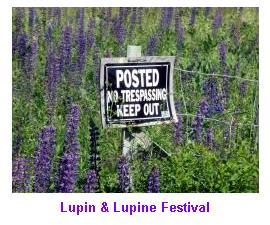|
|
|
Ben Kilham: NH's own Bear Whisperer, a Bear Rehabilitation Expert |
|
|
Hikes To Plane Crash Sites Littleton Downtown Riverwalk Enjoying Mt. Washington Franklin's Lesson For Today NH Helicopter Rides FREE Stuff To Do NH Lupine Photos Avoiding Romance Scams Pittsburg NH Profile Mascoma Lake Profile Farm To Table Restaurants Carroll NH (Twin Mtn.) Profile Colebrook NH Profile Ben Kilham Profile Whitefield NH Profile Clark's Trading Post
Seussical (9/6-15) 2001 Space Odyssey (9/7) Muster in the Mountains (9/7-9) Wingzilla (9/8) Canzoniere Grecanico Salentino (9/9) Things [Mom] Taught Me (9/13-23) Reach the Beach (9/14-15) WM Storytelling Festival (9/14-16) Metallak Race (9/15) Mandeville & Richards (9/15) Cohase Film Slam (9/16) Tricycle Grand Prix (9/16) Rodney Crowell (9/21) NH Highland Games (9/21-23) Don Who (9/22) Harvest Celebration (9/22) Health & Wellness Fair (9/22) Jeep Invasion (9/22) Lakes Region Tri Festival (9/22-23) Pat Metheny (9/26) Driving Miss Daisy (9/27 - 10/6) Neko Case (9/27) Shot of JD (9/28) Dixville Half Marathon (9/29) New Hampshire Marathon (9/29) Matthew Odell (9/30) Lincoln Fall Craft Festival (10/6&7) Sparrow Blue & Crowes Pasture (10/6) Oktoberfest (10/6-7) White Mountain Oktoberfest (10/6-7) Fall Foliage Celebration (10/6-8) Sandwich Fair (10/6-8) Paddle the Border (10/7) Lincoln Fall Craft Festival (10/7-9) Shadow Play (10/10) Killer Joe (10/11-21) Greg Brown (10/12) Camping & RV Show (10/12-14) Riverfire & Horrorfest (10/13) Jay Stollman Band (10/19) Murder Dinner Train (10/19-20) Pumpkin Patch Express (10/19-21) All Things Pumpkin (10/20) Ethan Setiawan Band (10/20) Bettye LaVette (10/26) Murder Dinner Train (10/26-27) Pumpkin Patch Express (10/26-28) Berlin Jazz (10/27)





| |||||||||
|---|---|---|---|---|---|---|---|---|---|
Quick Links |
|||||||||
  | |||||||||
Business Directory |
|||||||||
Androscoggin Valley Hospital
Moffett House Museum Northland Restaurant Perras Treasures Party Store Personal Touch Home Health White Mountain Cottages
more ►
 
Alpine Adventures Clark's Trading Post Cog Railway Conway Scenic Railroad Flume Fort Jefferson Fun Park Jericho Mountain ATV Park Kancamagus Highway Littleton Riverwalk Lost River Gorge Mountain Meadow Funplex Mt. Washington Auto Road Polar Caves Santa's Village Storyland Vertical Ventures Whale's Tail Water Park Woodstock Inn & Brewery
more ►
Bethlehem more ►
25 Great Summer Adventures Farm To Table Restaurants Hiking To Crash Sites Little Ski Areas Local Movie Theaters Local Performance Theaters Moose Tours
more ►
NH Cabins & Cottages
|






 1
1 2
2 3
3 4
4 5
5 Ben Kilham is New Hampshire's only licensed bear rehabilitator, and an expert on black bear behavior. He has been taking in orphaned cubs for 20 years. With help from his sister Phoebe and his wife Debbie, he raises them until they're old enough to fend for themselves. While they are growing, he observes and documents their behavior, but keeps human contact at a minimum so the bears retain their wild nature.
Ben Kilham is New Hampshire's only licensed bear rehabilitator, and an expert on black bear behavior. He has been taking in orphaned cubs for 20 years. With help from his sister Phoebe and his wife Debbie, he raises them until they're old enough to fend for themselves. While they are growing, he observes and documents their behavior, but keeps human contact at a minimum so the bears retain their wild nature.




